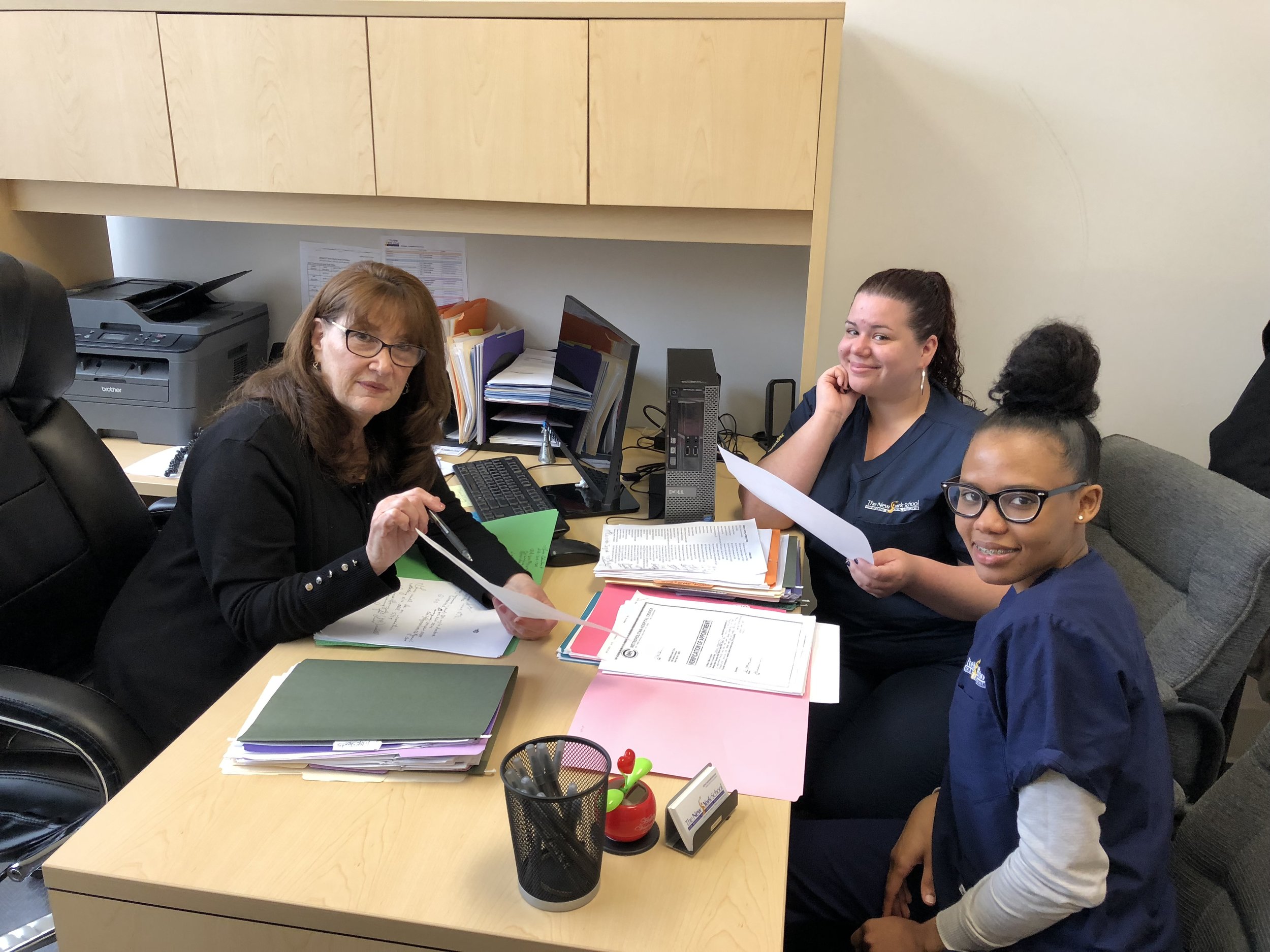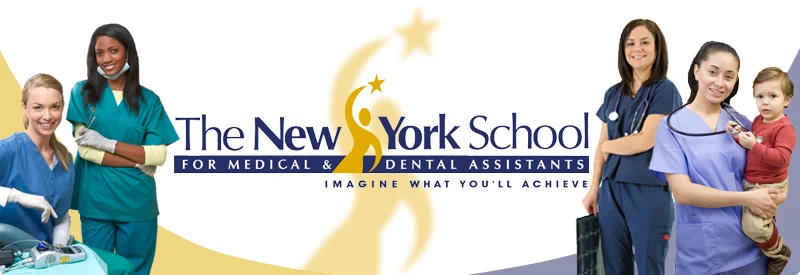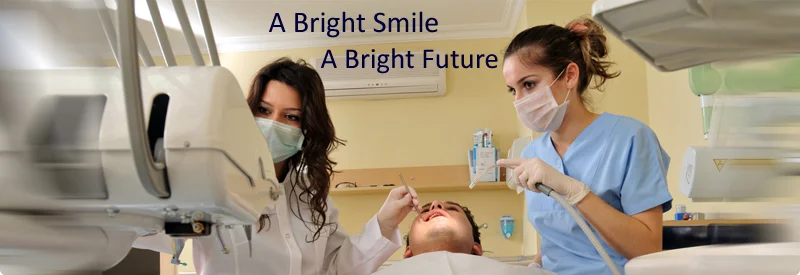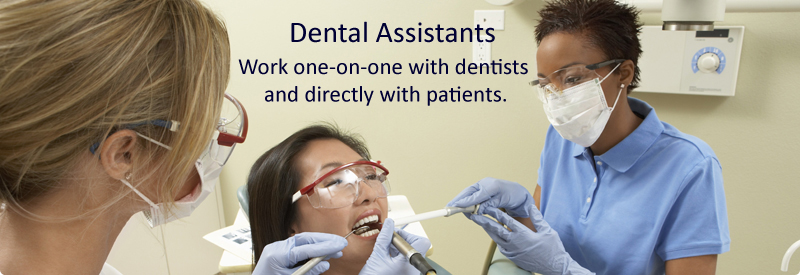Creating the Most Successful Medical and Dental Assistants
/As noted in my first blog, The New York School for Medical and Dental Assistants is committed to providing the highest level of training to our students both in the classroom and during the job readiness process. Accordingly, I wrote about Professional Development (Part 1) – Personal Comportment, which was posted April 10, 2018, and promised to follow up with a segment titled Professional Development – Personal Character and Communications.
Below you will find the follow up to my initial blog. I find this area to be quite interesting as Personal Character is primarily the responsibility of the student and the way he or she was raised and chooses to behave whereas Communications usually involves multiple parties and, thus, there is greater uncertainty.
Professional Development (Part 2) – Personal Character and Communications
Verbal Communications – As humans we often fall prey to our comfort zone when communicating with others. However, in the workplace it is important to remember the difference between “yes” vs. “yeah” and the added value of an appropriate “thank you”, “please”, “sir”, or “ma’am” – common courtesies that make a difference. Thus, use of professional language is reinforced and a reminder is given about the inappropriateness of slang or idiom in the workplace. Student verbal communications go a long way toward their assessment by their supervisors.
Non-Verbal Communications – Nothing is more disarming than a warm smile and firm handshake (but, don’t squeeze too tight of course!). Thus, reminders are provided regarding the impact of mouth, eye, and head movements as well as hand gyrations and body positioning relative to others.
Teamwork – Teams will always produce a better result than the combined actions of individuals as there will always be times when everyone needs help and that’s what teams do. Thus, we reinforce the importance of working together as a team to achieve a collective goal.
Flexibility – Although every student has different commitments outside of his or her externship responsibilities, we underscore the value ascribed by employers of employee flexibility. The ability to stay late or arrive early can often make an employee stand out among his or her peers.
Attitude – A winning attitude goes a very long way in the eyes of an employer. Externs and employees that are willing to go the extra yard, put the patients first, and do whatever is necessary for the team will always be most valued. We discuss student experiences in this regard.
Honesty – While impossible to teach, it is critically important and is re-emphasized.
Ethics – We discuss the concept of one’s moral compass as well as the channels of communication to be followed if a student encounters a moral conundrum. Our school will always be there for our students if they ever feel ethically compromised.
Patient Triage – Inevitably, every employee/extern will be required to deal with a patient that is “in crisis”. Whether it be over the phone or in person, the extern will need to manage this situation as best as he or she can. We discuss various scenarios and potential action plans.
Compassion – The healthcare field is a caring one so the assistant must go about his or her responsibilities for reasons greater than a paycheck. Satisfaction must be gained by serving others so we delve into the reasons for joining these exciting fields.
Attention to Detail – We all know that the “devil is in the details” but it’s never more important than in healthcare where attention to detail impacts patient histories and records, procedures, and even the questions that might be asked by the physicians. Asking probing questions, preparing copious notes, and keeping files in order are critical to properly taking care of patients.
Managing Expectations and Anticipation of Needs – The most successful assistants are the ones that understand the ergonomics of the office and the way their boss works. Being able to anticipate his or her needs demonstrates critical thinking and makes the extern or employee that much more valuable. We discuss different strategies to consider.
Professional Self-Advocacy – Students are reminded that they are their own best advocate but that advocacy needs to be done with sensitivity and diplomacy. It is not unreasonable to ask one’s supervisor, “What can I do to become better and more valuable to this office?”. At the same time, students should not ask this question every hour while on externship. We talk about balancing the communication.
Dealing with Conflict – Conflict exists in every professional environment and in all aspects of our lives. We discuss different ways to respond to conflict with the hope that these conversations might help our students develop strategies in the event an uncomfortable situation arises. Some of these discussions might also serve as platforms to deal with conflict in our students’ personal lives.
Stress Management – We discuss how to deal with stress management not only in the workplace but also in life. Whether through yoga, exercise, breathing, or reaching out to valued friends, we engage our students to explore ideas to help manage their own stress.
Fear of Failure – A reasonable consideration for anyone new to any field, we remind our students to believe in themselves, trust what they’ve learned, and really concentrate on asking questions, learning from mistakes, and committing themselves to grow from their experiences.
Problem Resolution – Every problem and office are different so we engage in a conversation with our externs about their experiences in this regard. We discuss specific situations and both positive and negative outcomes. Accordingly, we work to develop strategies for handling real life situations going forward.
Dealing with Negative Feedback – Employers have every right to be critical in their assessment of student performance. Students are reminded that they might not always like what they hear, nor agree, but this is a part of the employee/employer relationship. How the student handles negative feedback goes a long way toward learning from their performance and becoming a better employee. Thus, we discuss ways to handle situations like this.
Dealing with Negative Co-Workers – Intra-office politics is always challenging but we remind our students that their primary responsibility is to the patients and the practice. If friendships are made, that’s a bonus; however, we remind them to never feel badly about working harder than their peers even if they have to listen to their gossip.
Dealing with a Hostile Supervisor – This is a very complicated area especially in a private practice. Most likely, the best solution is to contact the student’s placement advisor if any situation occurs that makes him or her feel uncomfortable. But, under no circumstance should a student respond with equal hostility.
Discussion of Personal Life – While very difficult to do during times of personal crisis, the best strategy is always to keep one’s personal life private. It is fine to build relationships but sharing too many personal thoughts can become a problem.
Sexual Harassment - This again is a very complicated area especially in a private practice. Most likely, the best solution is to contact the student’s placement advisor if any situation occurs that makes him or her feel uncomfortable. The good news is that we have not had to deal much with this issue but, with that said, it is a really important issue that we closely monitor.
Thanks for taking the time to read my thoughts about what’s going on at our school. As we have an upcoming graduation at NYSMDA on July 20th, my next blog will be titled “Graduation and Why It Matters” and it will be uploaded before the end of June. I will discuss the importance of graduation across a variety of spectrums – both personal and professional.






